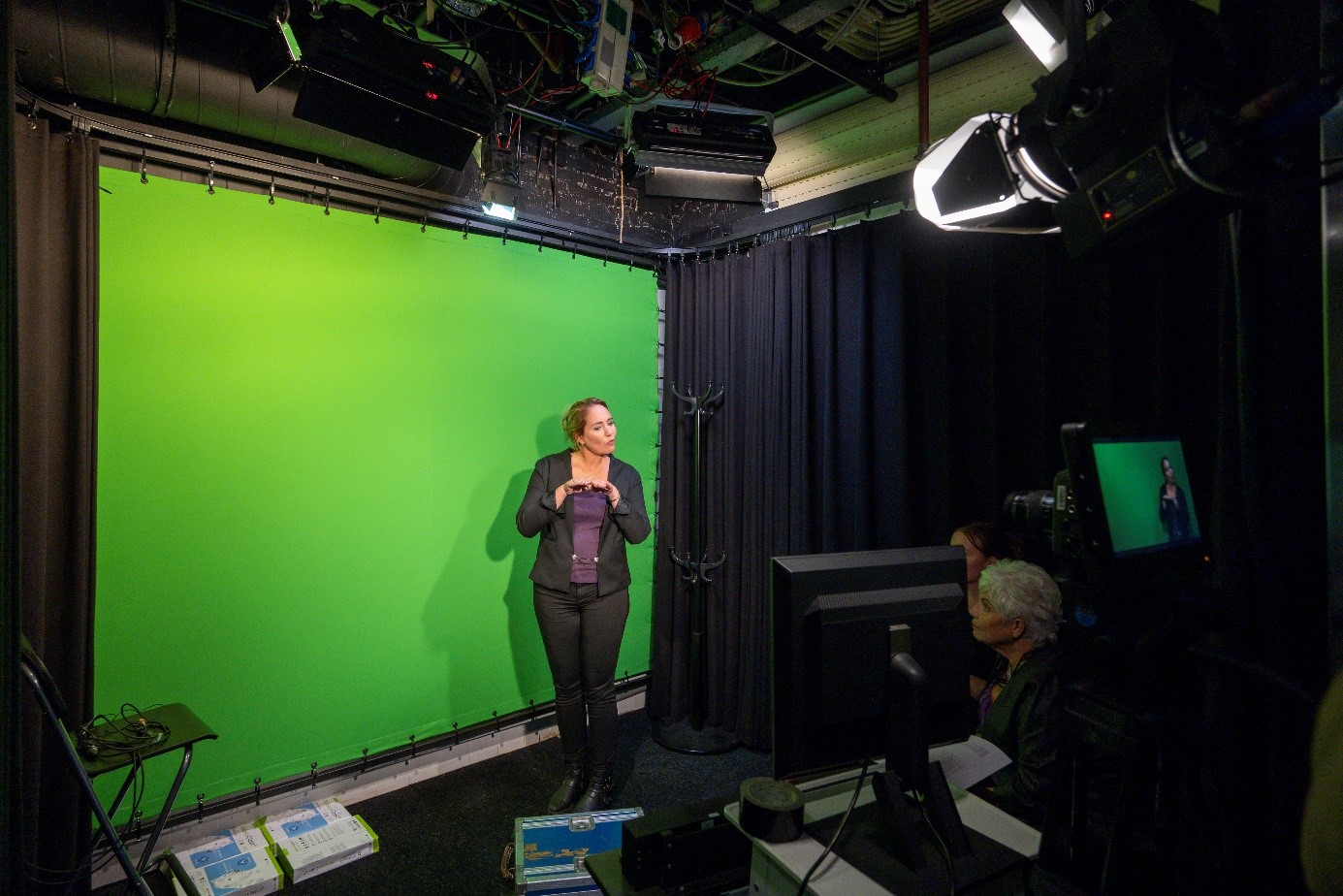Introduction
At the time of writing this article, the reporters and other employees of the parliamentary reporting office (PRO) of the House of Representatives of the Netherlands have been working mostly at home for six months as part of “an intelligent lockdown” in response to the Covid-19 outbreak. This remote working is likely to continue for an extended period, although some staff still go the House to observe the meetings. In this article, I present the changes to our processes that have made it possible to continue our work during this time of crisis.
Skeleton crew
Since the beginning of March, all PRO reporters have been working mainly at home. At that time, a measure was announced by the Dutch Government to make working from home for civil servants the new normal. Office presence is now permitted only where it is essential. For reporters, this means in practice that only the markers are present in the building and in the meeting rooms. Markers are reporters who indicate with a mouse click in our XML system (VLOS), what is happening in a meeting at a given time: a change of agenda item, a new speaker, an interruption, the submission of a Motion or an amendment, et cetera. This information is processed live in the official reports and the live video application “Debate Direct”, and used for navigational purposes in the video-on-demand application “Debate Missed”.These changes mean that, instead of a full house of about 60 employees, the parliamentary reporting office is making do with a skeleton crew of some 15 employees. Some of these are reporters who provide live subtitles for debates. Subtitling takes place from a special room in the House, so the subtitlers are still needed on site. All the other parliamentary reporters are working remotely from home.
Busy again
After a short break in March, which was used to corona-proof the meeting rooms for example by ensuring a distance of 1.5-metres between participants work slowly started anew. Plenary meetings were held only every two weeks to discuss the state of affairs in the fight against corona. These sessions were preceded by technical briefings from the National Institute for Public Health and the Environment, so that MPs were fully prepared with the latest figures and insights. During July and August, the House was recalled from recess on several occasions to address urgent topics: developments in the pandemic in the Netherlands, the appreciation of healthcare workers, the pension agreement, the EU summit of 17 and 18 July, and the 4 August disaster in Beirut, Lebanon.
As of 1 September, the House has returned to a more normal business pattern. The plenary agenda is as busy as before. The public, in small numbers, are welcome again in the public gallery.
Pros and cons of remote working
With the start of the intelligent lockdown, a dream may have come true for some employees: permission to work from home, with its associated benefits – no travel time, and all the advantages of combining work with private life, housekeeping, child care, et cetera. In reality, while some officials enjoy this way of working, others find it unsatisfactory. None the less, it is striking that the current way of working with respect to both process and the finished report seems to be going pretty well, or at least no better or worse than usual.
What makes remote working difficult for everyone is the lack of personal contact. People miss their co-workers. They miss gossip at the coffee machine, advice from colleagues and pats on the back. At the same time, every simple communication now means calling, emailing or using WhatsApp or videoconferencing tools like Zoom, Google Hangouts or Microsoft Teams. Some find the many video conferences especially tiring and less effective than physical meetings.
Home office
Working at home means a higher dependency on technology: the internet, wi-fi and, in our case, the virtual environment of the Dutch Parliament. Almost all reporters have taken their audio player foot pedals home. In the absence of a suitable workplace in the home, some have even taken their office chair. However, staff are not provided with computers to use at home.
To get a clear picture of the state of our home offices, PRO management organised a survey. The results were predominantly positive. Luckily, a majority of employees already have a working Windows 10 PC or laptop at home as well as a work room with desk and chair, including the aforementioned foot pedal. Also, the quality of the homeworking environment, including critical software such as VLOS, Aveo player, Express Scribe and the home network connection, is judged to be predominantly good. This is great news and means that there are no more concerns regarding moving almost all processes from the Parliament to the home office.
So, homeworking does not yet seem to have had any major consequences for the quality of our work. It is mainly job satisfaction that suffers. In general, less contact with your colleagues simply means less pleasure in your work.
Surprises
Working during the pandemic has involved some surprises. One major impact on reporters has been the change to our workplace in the plenary room. In all meeting rooms, more space has been sought between desks with a view to social distancing. In the plenary hall, this has resulted in the former central reporting area being moved to the sidelines. That means saying a final goodbye to a workplace that has been situated in the middle of the national Parliament for more than 170 years.
Another surprise has been a new approach to parliamentary reporting. Concerns had been raised that measures taken to combat the virus were inadvertently reducing the transparency of parliamentary work. For some time, for example, no members of the public were admitted to meetings in the House. This reduced transparency had applied particularly to certain groups such as the deaf and hard of hearing,whose experience of digital accessibility and user-friendliness often lags behind. When the House debated the Dutch Sign Language Recognition Bill on 1 September, the PRO, with its experience of both live subtitling and live streaming, was tasked with organising an ad hoc stream with a sign language interpreter. This ad hoc stream was based on a collaboration between the PRO, the facility services of the House, some suppliers and a few hired sign language interpreters. The stream attracted 1,260 viewers as against 4,621 viewers on the stream with live subtitles.

From the initial, informal responses, it appears that this initiative was positively received by the deaf and hard of hearing community, so positively, in fact, that a stream with sign language was organised again for the next debate on the Bill. Following these first positive experiences, the PRO will investigate in the coming period what it would take to include this service permanently in its catalogue of services. It is a matter of supply and demand, but also of increasing pressure from all kinds of regulations to provide TV broadcasts and streams from public authorities with a sign language interpreter.
Conclusion
Work continues, even in times of crisis. For us, working in this particular crisis has been characterised by working from home, seeing less of our colleagues, but still delivering quality. It has also meant a final goodbye to our workplace in the middle of the plenary hall and the introduction of sign language as a new service.
Henk-Jan Eras is a quality officer at the Parliamentary Reporting Office of the House of Representatives of the Netherlands.





[…] Henk-Jan Eras:Delivery ensured: parliamentary reporting in the time of Covid-19 […]